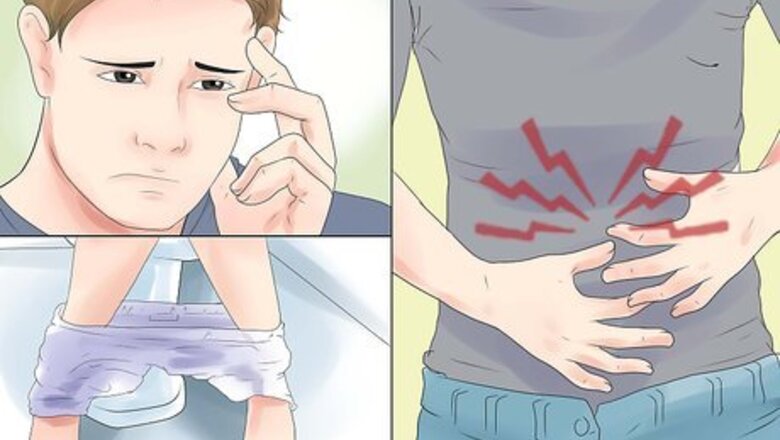
views
Diagnosing and Evaluating
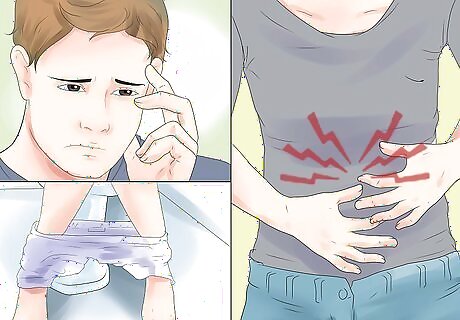
Recognize the symptoms. It's important to recognize the symptoms of pancreatitis, so that you can seek help sooner. The sooner the problem is dealt with, the easier it will be to solve. If you have any of the following symptoms that persist for several days or that cause you serious discomfort, call your doctor: Pain in your upper abdomen, which can radiate toward your back. This pain will usually be worse after eating. Your abdomen may also be tender to the touch. Nausea and vomiting. Oily, greasy-looking stools that are light colored. Recent weight loss without apparent cause.
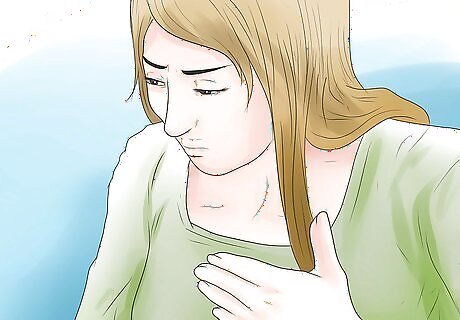
Be aware of other possible problems. These same symptoms may be from other sources. You may not have pancreatitis, but instead have some other problem. However, these problems can still be very serious, so it's important to still seek treatment. Other possible sources of the problem include: Ulcers - black or bloody stool is one of the major symptomatic differences between ulcers and pancreatitis Gallstones - fever and skin discoloration are some indicators of gallstones over pancreatitis but many of the symptoms are exactly the same Liver disease - skin or eyes yellowing or discoloration is a common indicator of liver problems instead of pancreatitis Heart attacks - tingling in the arms is one clear indicator that you may be having heart problems and not pancreatitis
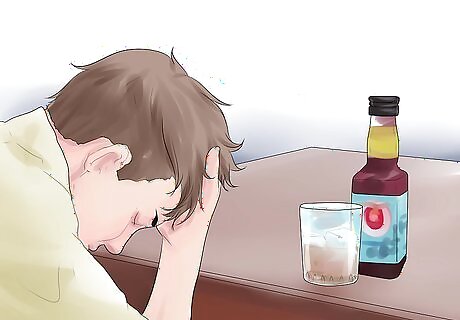
Acknowledge the causes. Alcoholism, cystic fibrosis, hyperparathyroidism, infection, and cancer are some of the precursors of pancreatitis. These are serious conditions that have lots of other negative impacts on your health and well-being, so it's important to be sure that they are being treated. Alcoholics have more occurrences of pancreatitis. Even though you may not think you have a problem, it's a good idea to consider it.
Seeking Medical Help
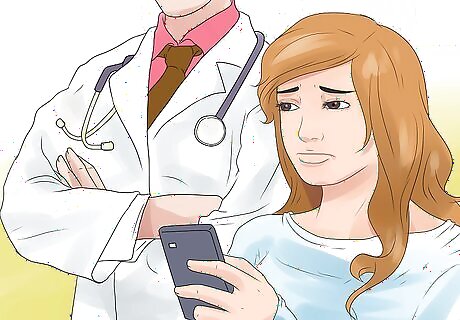
Contact your doctor or go to an emergency room if you have a flare-up. Because the causes of pancreatitis are often very serious and because the treatment you'll need is more than what you can do at home, you're most likely going to need to be treated at a hospital. Either immediately see your own doctor, who will probably have you admitted to the hospital, or go to the emergency room if you don't have a general doctor to make sure that pancreatitis is really your problem.
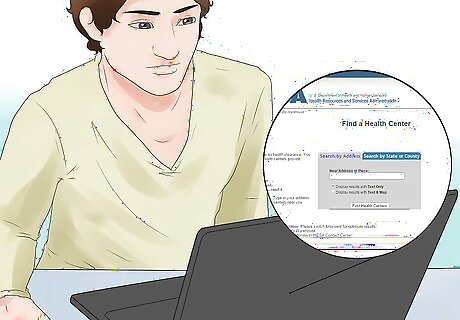
Find medical assistance if you don't have health insurance. If you live in places like the US, it is possible that you do not have access to health insurance. This should not keep you from seeking treatment, however. There are programs in place to help you and treatment centers across the country that you can go to. See the official listings to find out the closest location to you.
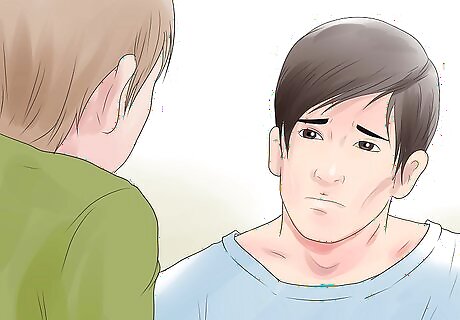
Acknowledge the consequences. Ignoring pancreatitis may lead to severe weight loss, diabetes, debilitating pain, lung failure, or even death. Seek immediate help if you suspect that you have pancreatitis and don't assume that the problem will just go away. Many cases of pancreatitis may not require medicine, but they do require healthcare procedures that you can't do at home! Pancreatitis affects your pancreas' ability to process fat. Not only will this cause you to have stomach pain and possibly diarrhea when you eat fatty foods, but your body also won't be able to absorb vitamins that are fat-soluble, like A, E, D, and K. You can also develop diabetes because your body won't be able to produce insulin.
Receiving Treatment
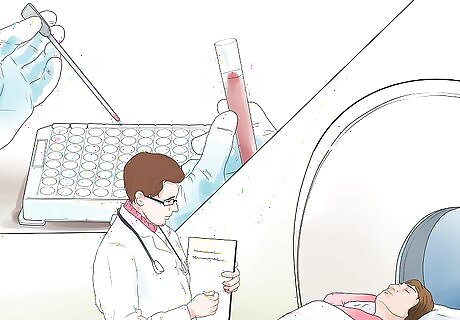
Be prepared for some tests. You may need to undergo some tests to find out if you have pancreatitis. Blood tests, stool tests, CT scans, and ultrasounds are the most common tests to find out the source of your health problems when pancreatitis is suspected.
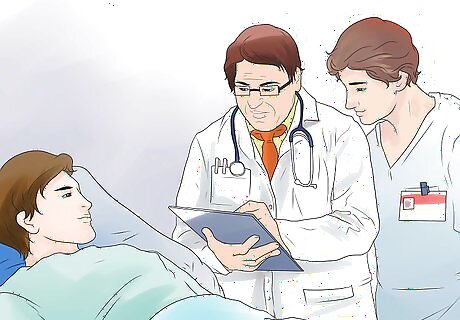
Receive basic treatment. For 75% of patients, basic hospital care will be all that is needed to recover. However, this is still complex enough care that it will need to be done at a hospital and home remedies are not usually a safe option. Your doctor should be able to explain your situation. Expect to fast. Eating no food for up to several days, and instead being switched to liquid diets, feeding tubes, and other alternatives are generally the main basic treatment for pancreatitis. This is because eating makes the irritation worse and makes you unable to heal. Get IV fluids. Severe dehydration is a major part of pancreas problems, so expect to be given a large number of fluids to combat this. This will most likely come in the form of IV fluids, but you may also be asked to drink more water. You will probably be given some medication. Pancreatitis causes significant and constant pain and your doctor should give you painkillers to help alleviate the pain. Meperidine or Demerol are the most commonly prescribed painkillers for patients with pancreatitis. Take antibiotics should your doctor prescribe them. They may be given to prevent possible infection or to treat an existing one.
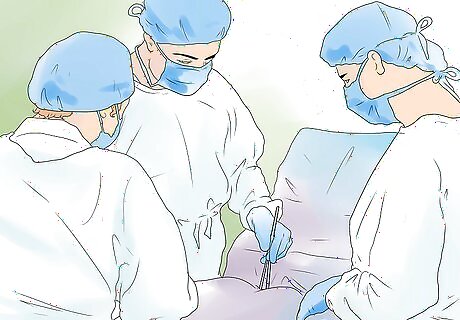
Treat the underlying cause. For basic or mild cases, the underlying cause may be very easy to treat (such as a change in medications). However, more severe cases or chronic cases may require more serious treatment. Surgery is the most likely option if you have a severe problem. The kind of surgery will depend on the underlying cause. Some options include gall bladder removal, surgery to repair or remove parts of the pancreas, or surgery to unblock bile duct obstructions. You might also need to have surgery to drain cysts that can form around your pancreas. Treatment for alcohol dependency will be recommended if it is determined that this is the source of the problem. For your own happiness and well being, it is recommended that you comply with your doctor's wishes in this area, even if you don't think you have a problem. There are enzyme supplements which you may be asked to take if your body is no longer making the pancreatic enzymes you need to digest fat. These supplements are in the form of a simple tablet and aid with digestion, keeping the pressure off of your pancreas.
Preventing Future Problems
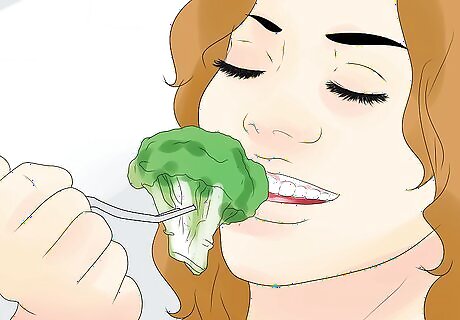
Eat healthy and exercise. If you have only a mild case of pancreatitis, you may want to take some precautions so that you don't get pancreatitis again in the future. One of the best things that you can do is to eat healthy and exercise. Pancreatitis can develop due to high triglycerides or diabetes. Keeping yourself healthy may help relieve pancreatitis symptoms. This means eating a diet low in sugar and rich in vegetables and protein. Eat fewer carbs (like pasta and chips) and cut foods with lots of sugar out of your diet. Eat more vegetables than fruits (which contain lots of sugar) and bid goodbye to soda! Lean proteins are also great, so eat lots of fish and chicken. Avoid eating animal fats as much as you can. You can also get some help with exercise, if you need it. You'd be surprised how easy it is to fit exercise into your day.
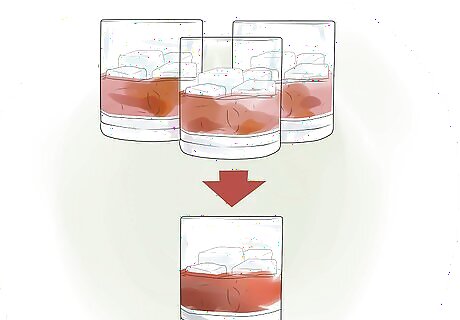
Reduce your alcohol consumption. Drinking alcoholic beverages on a regular basis is a factor that could lead to pancreatitis. If you have been diagnosed with pancreatitis or seem to be prone to pancreas problems, stop drinking alcoholic beverages. If you want to still fit in and socialize with your friends, quietly order an apple juice or a water in a martini or whiskey glass. Both of these look like booze but aren't actually alcoholic.
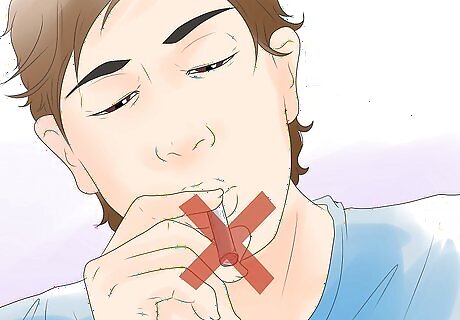
Stop smoking. Smoking also causes pancreas problems and may cause or make your pancreatitis worse. Smoking also has lots of other negative health effects, so you're better off trying to quit. There are lots of great methods these days for helping you quit, so don't sweat it and just give it a try.
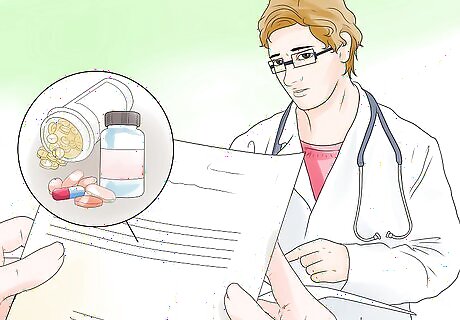
Consider a change in medications. Talk to your doctor about medications. Some medications may lead to pancreatitis. Your doctor should recognize this on their own, but you may want to bring it up if you feel it may not have been considered. This is especially important if you are with a new doctor who may not know your medical history.




















Comments
0 comment